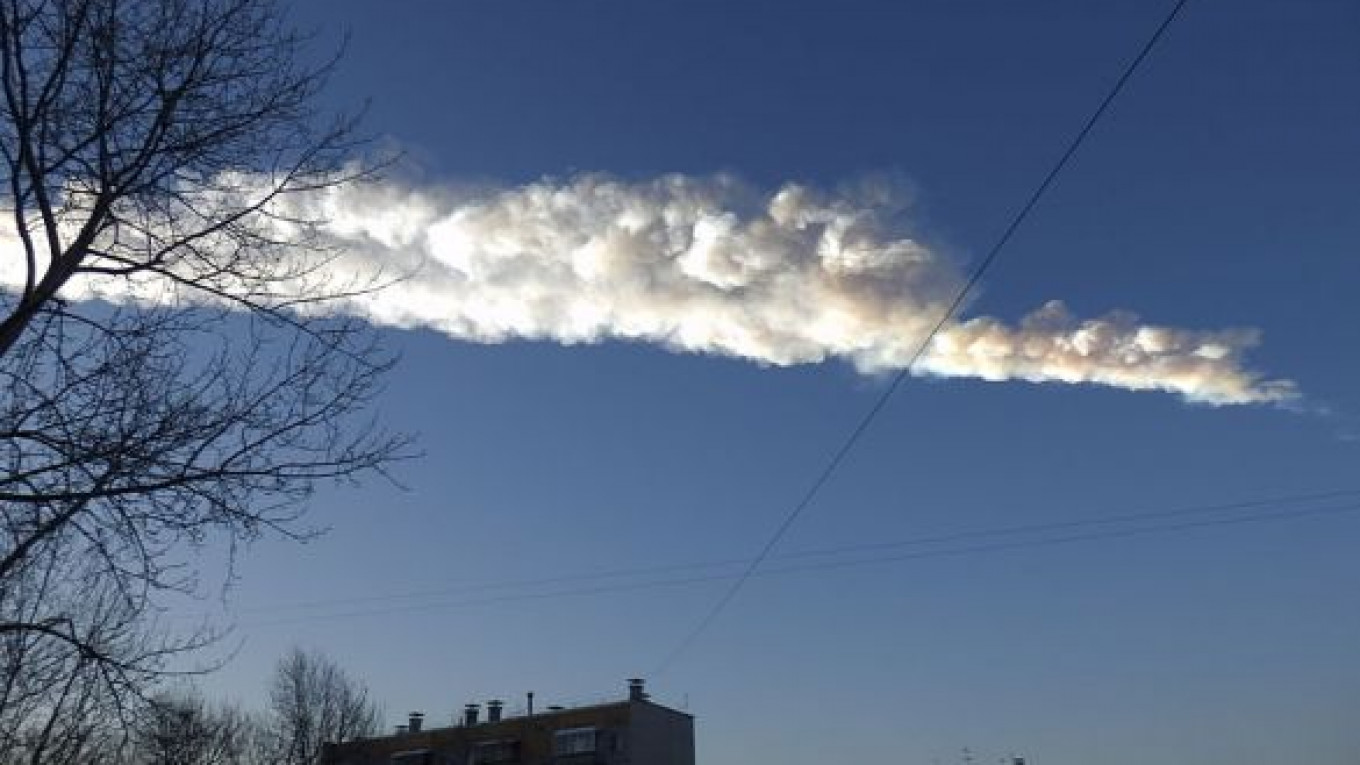The recovery of a rock that is thought to be a fragment of the meteorite that exploded over the Chelyabinsk region in February was greeted with trepidation by one of Russia's top officials.
Deputy Prime Minister Dmitry Rogozin, whose sphere of responsibility includes the defense industry and arms technology development, seemed perturbed by the meteorite and warned that steps had to be taken to avert an apocalypse.
"Who can guarantee that the next meteorite won't be 100 times bigger?" Rogozin asked on his page Wednesday. "I think that inevitably we have to address the question of defending the planet against uninvited "guests from outer space."
The fragment, lifted from the bed of Chebarkul Lake in the Chelyabinsk region on Wednesday, weighed about 600 kilograms before it cracked into three pieces during the recovery operation.
"This fragment was quite big, and, apparently while being pulled, it cracked and split into three parts. However, the two biggest fragments weigh 570 kilograms in total," Chelyabinsk Region Governor Mikhail Yurevich said in a statement.
The exact weight of the three pieces combined is unknown, because the scales broke when the needle reached 570 kilograms.
After being carefully studied by scientists, the biggest fragment will be put on display at a local museum.
"It's a typical meteorite, judging by its appearance — [I'm] 105 percent [sure]. There's no doubt about that, [it has] a thick melted crust, while dents reveal typical structures of the Chelyabinsk meteorite," said Viktor Grokhovsky, a member of the Russian Academy of Sciences' meteorite commission.
The meteorite, which exploded above Chelyabinsk on Feb. 15, is estimated to have weighed about 10,000 metric tons and measured about 17 meters in diameter. The blast left about 1,500 people injured, mostly by glass shattered by the shockwave.
An operation to recover fragments of the meteorite from the lake began in late September.
Divers fished out 13 rocks, weighing up to 11 kilograms. Scientists have confirmed the extraterrestrial origin of 11 of the rocks.
"The operation cost us 1.6 million rubles [$51,000], approximately," Yurevich said. "The work will stop now; we will leave the smaller fragments for tourists, who might try to retrieve them on their own."
Material from The Moscow Times is included in this report.
A Message from The Moscow Times:
Dear readers,
We are facing unprecedented challenges. Russia's Prosecutor General's Office has designated The Moscow Times as an "undesirable" organization, criminalizing our work and putting our staff at risk of prosecution. This follows our earlier unjust labeling as a "foreign agent."
These actions are direct attempts to silence independent journalism in Russia. The authorities claim our work "discredits the decisions of the Russian leadership." We see things differently: we strive to provide accurate, unbiased reporting on Russia.
We, the journalists of The Moscow Times, refuse to be silenced. But to continue our work, we need your help.
Your support, no matter how small, makes a world of difference. If you can, please support us monthly starting from just $2. It's quick to set up, and every contribution makes a significant impact.
By supporting The Moscow Times, you're defending open, independent journalism in the face of repression. Thank you for standing with us.
Remind me later.






